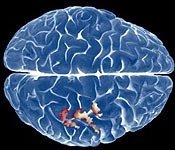Scholar as Citizen / Scientist as Historian
The recent chatter here , and elsewhere , about Bill Cronon’s blog, Scholar as Citizen , has gotten me to thinking about another thread that’s been running through our discussions. That is: how we ought to approach the communities whose historical antecedents we study. As some of you will recall, Hank took issue with a sentiment that Betty Smocovitis voiced in her interview with Megan Raby (available here ). The point of disagreement was whether we should strive to craft historical narratives that scientists themselves will be able to read, such that they recognize themselves (or their forebears). To paraphrase somewhat, Betty and Megan’s sentiment was, “I want my own work to be able to be read by scientists, and they can ... learn something.” A scientist should not come away from having read a piece of historical writing and think “that doesn’t look like me at all,” that “it’s offensive or insulting.” If I understood him correctly, Hank thinks that it should not...

